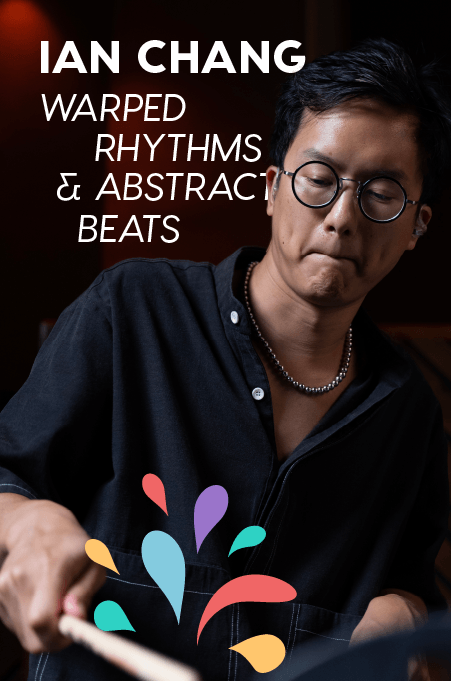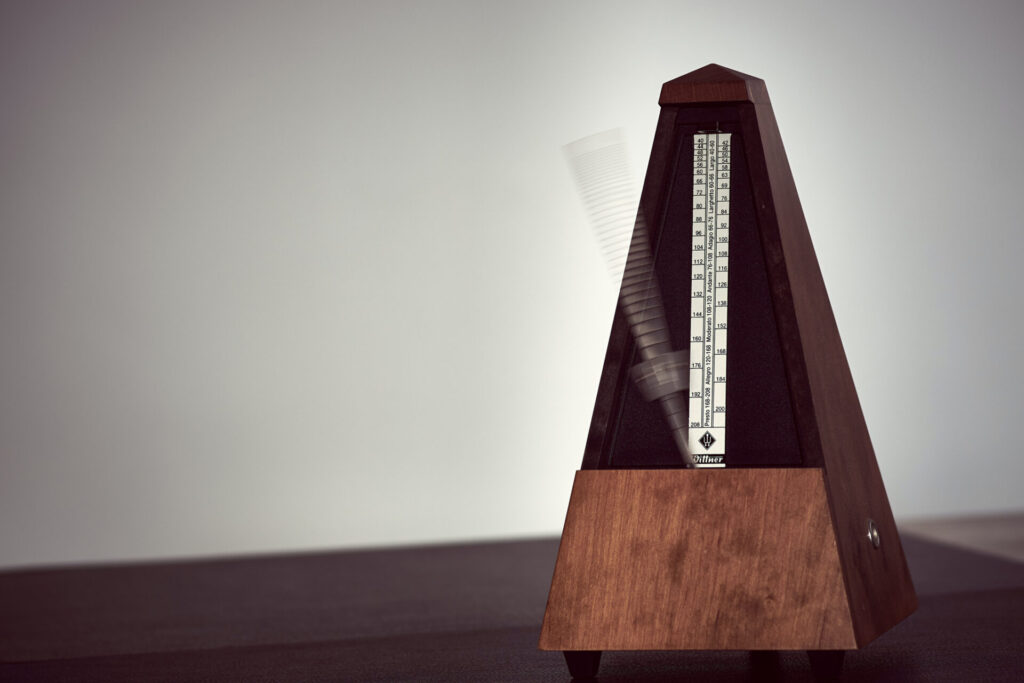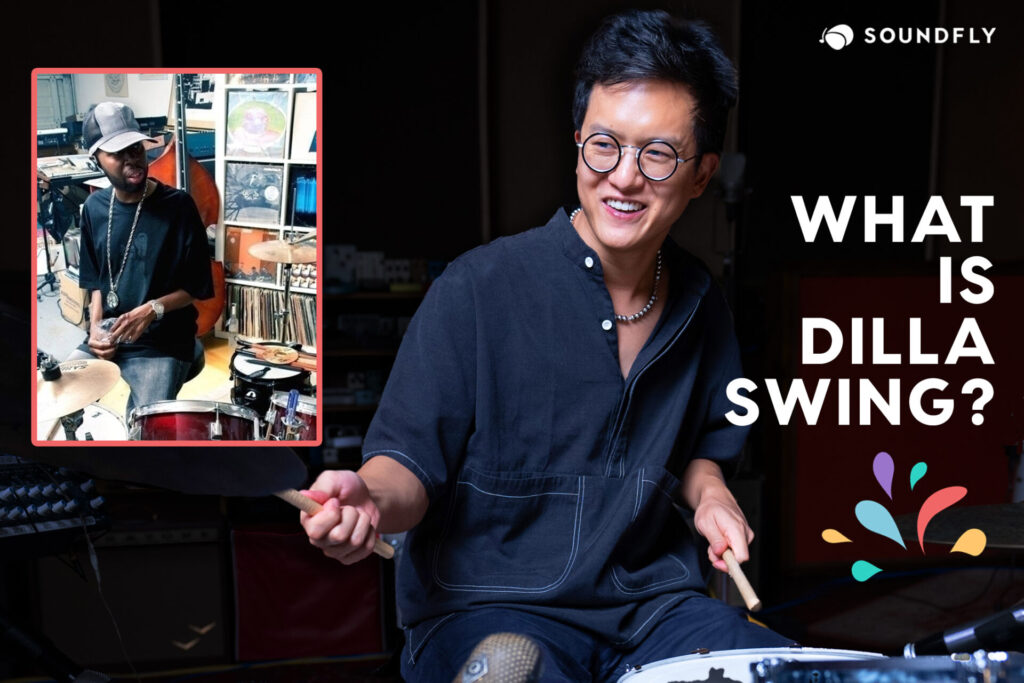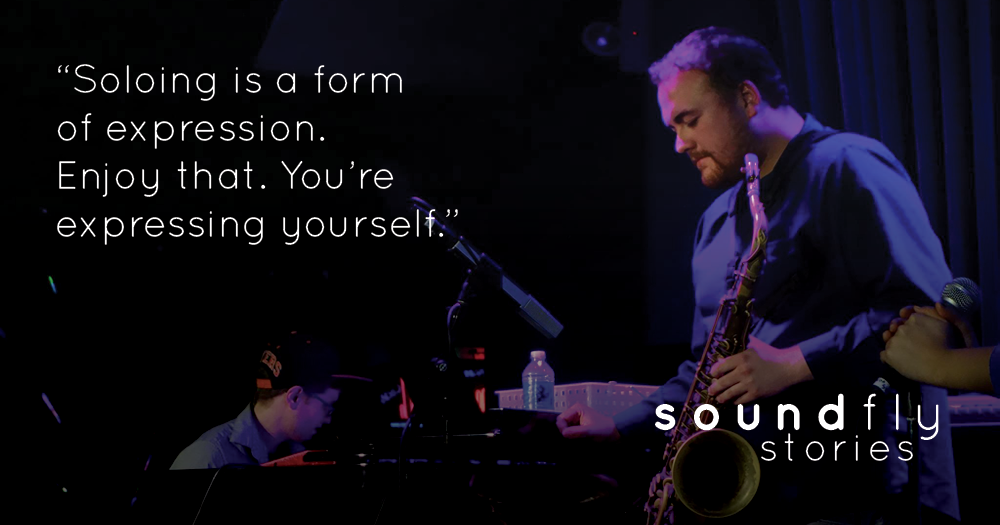
There aren’t many musicians who are able to balance organic emotion and technical prowess in their playing. Most of us lean in one direction or the other. However, in the time I’ve known him, I have never seen Jared play a solo that wasn’t equal parts instinct and practiced skill. As a performer, he is a crowd-mover and a true storyteller. After nearly a decade of wondering what makes him such a refined musician, I finally got a look into his mind.
Hometown: Santa Barbara, CA
Current town: Boston, MA
Musical identity in two words: Technically soulful.
Noteworthy projects: Evolfo, Tiger Speak, Amethyst, Wetlands, Project Blue Book, The New Review
—
What is the best part of being a musician?
I really like bringing joy to people with my music. I like the exchange of energy between me and the audience.
Can you share a funny musical memory?
So I was playing a set with Wetlands at a club called Soho in Santa Barbara. In the middle of the set, I do a little intro solo into a song called “2 see” and the lead singer, Jeremy said “everyone get down on the floor. Get down on your knees.” As I was playing my solo, I looked around and everyone’s just on the floor on their knees. It was weird, I was chuckling in my head, but it wasn’t enough to distract me. I guess I was in the zone.
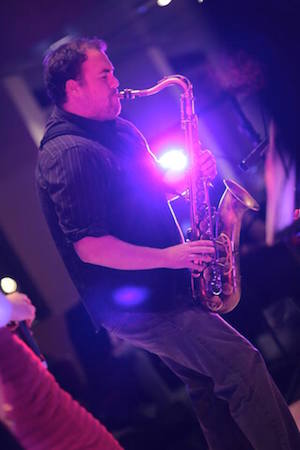
What is something that has shaped your musical identity?
It’s not necessarily one specific thing… all my teachers kind of shaped who I’ve become musically. I took classical piano, so there’s that, and when I started taking saxophone lessons, the improv side of me came out. I took guitar for a couple years, too. My teacher was a blues player who didn’t know much about reading music, so he taught me about using my ear and to not necessarily worry about notes on the page. It was more of a feeling thing.
You’ve played with some pretty legendary musicians. What’s it like to be on stage with someone like Plas Johnson or Kenny Loggins?
I’ve been very fortunate to have played in many different musical situations. That’s definitely helped me a lot. It’s been good for my soloing and playing, and my music in general. It’s allowed me to kind of go into unique situations and just go with what the music entails, rather than being distracted by everything else.
Does playing alongside a celebrity feel different than playing with your friends and peers?
It’s not really that different. They may have developed their craft more but you just have to remind yourself that they were once in your position. They’re just people you’re playing with. Although, I will say there are definitely a couple guys I would probably freak out to play with… if it was Chris Potter or John Coltrane.
I heard you once asked Kenny Loggins if he was in the danger zone. Is that true?
Haha, yes. That is true.
What did he say?
He just kind of laughed. Like “haha, yeah.” I was playing a Unity Telathon. Kenny Loggins was singing jazz with the Monday Madness Big Band—swing Christmas music, “Let It Snow,” that kind of thing.
What can readers do to improve their soloing?
Listen. Specifically to the other players. That’s very important.
Focus on maintaining a good sound. Sound is very important, especially for saxophone players. That’s kind of like your identity. Every player has a different sound.
Tell a story. I usually try to tell a story, so to speak. I won’t start a solo with a lot of notes. I might start with a phrase or some sort of motif and then develop that, always listening to everyone else’s playing as I go.
Create a shape. This comes into the story thing. You start off small and you build on that. That gradually gets bigger and then there’s a climax. And then you drop back down. Like an arc.
Be confident and have fun. Soloing is a form of expression. Enjoy that. You’re expressing yourself. Yeah, there might be some technical boundaries, but in the end, there are basically no rules. There’s no wrong way to play. If you have fun while you’re soloing, it’ll be easier to express yourself.
For more of Jared’s amazing solos, check out: Amethyst — “Something About Evergreens”, Project Blue Book — “The Imperative”, and The New Review — “Biznis”
—
